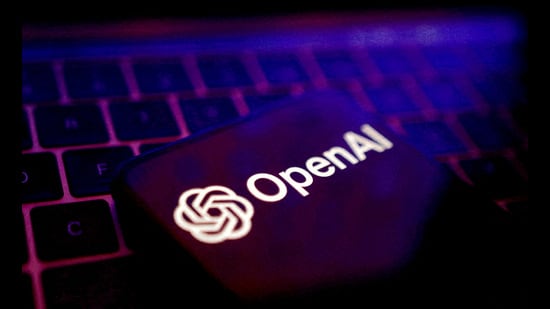Our Terms & Conditions | Our Privacy Policy
OpenAI announces India tie-ups to improve learning outcomes | Latest News India
New Delhi
For OpenAI, India represents its second-largest market after the US and home to the largest student population on ChatGPT globally (REUTERS)
OpenAI announced a sweeping partnership with the ministry of education and schools in India on Monday to expand artificial intelligence use in learning, committing to distribute half a million licences of its popular ChatGPT service across the country’s education system over six months.
The US company, which described the India project as its first major foray into the education sector globally, also announced a $500,000 research partnership with the Indian Institute of Technology Madras to conduct long-term studies on how AI can improve learning outcomes and help create new teaching methods.
“ChatGPT study is trained on the Indian curriculum and will help Indian students a little more specifically,” said Leah Belsky, OpenAI’s vice-president of education, during an interaction on the sidelines of the company’s education summit in New Delhi. The initiative would include training for educators to use AI for learning, she added.
Harikumar Janakiraman, director of digital education at India’s education ministry, welcomed the partnership, saying it would help extend AI access to teachers in government schools across the country.
The announcement underscores India’s position as a leading market for AI companies. For OpenAI, the country represents its second-largest market after the US and home to the largest student population on ChatGPT globally. Belsky said more than 50 per cent of ChatGPT users in India are under the age of 24.
The company hopes the initiative will help ensure AI tools deepen learning, rather than create shortcuts, while helping students build critical thinking skills when answers are instantly available.
ChatGPT gained rapid popularity when its updates at the end of 2022 gave people the first look at hugely promising application of generative AI — a promise borne out by the rapid adoption of the tool and many like it. But it has also accompanied concerns about how people learn and what the evolution of such technology means for education. In the last year, studies have highlighted the scale of this challenge with educational researchers documenting concerns about over-reliance on generative AI leading to diminished critical thinking skills, reduced retention of learning materials, and students circumventing the cognitive processes essential for deep understanding.
“We want students to use AI to learn, and not use it as an answering machine,” Belsky said.
The six-month programme will distribute ChatGPT licences through partnerships with India’s education ministry for government schools covering classes 1-12, the All India Council for Technical Education for technical institutes nationwide, and ARISE, an association representing most of India’s private schools. The company’s representatives, at the sidelines of the event, said there are no plans yet for specific outreach to states, which run a third large category of schools that fall under the state boards.
“At IIT Madras, our goal is to explore how AI can reshape pedagogy and expand research in education. Partnering with OpenAI allows us to push the boundaries of innovation and prepare the next generation of educators and technologists,” said Dr Kamakoti Veezhinathan, director of IIT Madras.
Prof TG Sitharam, chairman of AICTE, said AI was redefining how India shapes its technical workforce. “Leveraging such advanced tools will enable us to accelerate innovation, enhance learning experiences, and build a future-ready technical ecosystem.”
The partners will collaborate with OpenAI to develop training programmes for educators and students on using AI tools. The programme will also provide access to ChatGPT’s study mode, a feature that provides step-by-step guidance rather than direct answers to questions.
The company appointed Raghav Gupta, former managing director of Coursera – a company where Belsky too was a senior executive — as its new head of education for the region.
Also present at the summit was Anand Kumar, founder of the Super-30 programme in Bihar that trains students for engineering entrance exams. “No teacher should be afraid of technology,” Kumar said during a panel discussion. “We must embrace and invest in new tools. Unless teachers are trained in the latest technology, how will they prepare their students for the future?”
Government officials discussed the broader implications of AI adoption. Abhishek Singh, additional secretary at the ministry of electronics and information technology, noted the growing open-source AI ecosystem, with models such as Llama, Mistral and the recently announced Grok 2.5 – all competitors of OpenAI. Singh said OpenAI was returning to its founding philosophy of openness with its decision to launch an open-source version. “When that happens, we are able to collectively leverage the power of technology to build applications,” Singh said.
OpenAI said its education-for-India initiative is part of its run-up to India’s AI Action Summit, scheduled for February 19-20 next year in New Delhi. The event is expected to draw technology leaders including OpenAI chief executive Sam Altman and Google’s Sundar Pichai.
The education push forms part of OpenAI’s broader expansion in India, including plans to open its first Indian office in New Delhi later this year and recent launch of an India-specific ChatGPT subscription plan priced at 399 rupees ($4.75) monthly with local UPI payment integration.
Altman is expected to visit India next month to review operations and explore further agreements with the government, according to people familiar with the matter.
Images are for reference only.Images and contents gathered automatic from google or 3rd party sources.All rights on the images and contents are with their legal original owners.



Comments are closed.